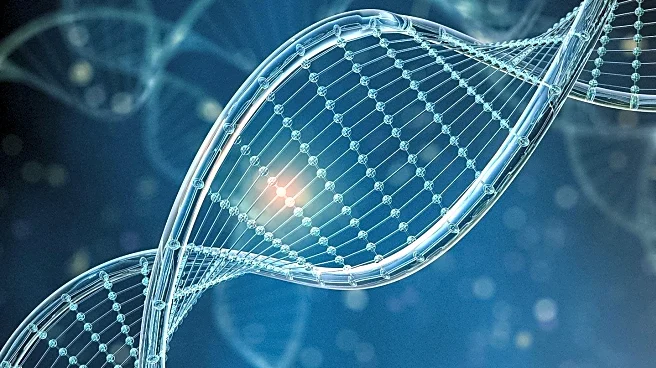What's Happening?
Research conducted by Huang et al. has uncovered that acute kidney injury (AKI) leads to the accumulation of somatic mitochondrial DNA (mtDNA) mutations, which can impair energy metabolism and reduce tissue resilience. The study focused on mtDNA mutations in the kidney, revealing that cells with mutant mtDNA polymerase exhibited impaired mitochondrial function, particularly in ATP generation. Mice with these mutations showed normal kidney function under regular conditions but were more susceptible to AKI when exposed to chronic stress. Metabolomics analyses indicated a decrease in nucleotide intermediates and amino acids involved in purine biosynthesis, alongside an increase in lipid species.
Why It's Important?
This research highlights the critical role of mtDNA mutations in the progression of mitochondrial diseases and their impact on organ function. Understanding how these mutations accumulate and affect energy metabolism can lead to better strategies for managing conditions like AKI and other mitochondrial disorders. The findings may influence medical approaches to treating kidney injuries and stress-related organ damage, potentially leading to new therapies that target mtDNA mutations to improve patient outcomes.
What's Next?
Future studies may focus on developing interventions to prevent or mitigate the effects of mtDNA mutations in kidney tissue. Researchers could explore therapeutic options that enhance mitochondrial function or protect against stress-induced damage. Clinical trials might be conducted to test the efficacy of such treatments in improving resilience to kidney injuries. Additionally, broader investigations into mtDNA mutations across different tissues could provide insights into their role in various diseases.
Beyond the Headlines
The study raises questions about the broader implications of mtDNA mutations in aging and disease. Ethical considerations may arise regarding genetic interventions aimed at reducing mutation accumulation. The research also underscores the importance of personalized medicine approaches, as individuals may respond differently to treatments based on their genetic makeup. Long-term shifts in healthcare practices could emerge as more is understood about the relationship between mtDNA mutations and organ health.











